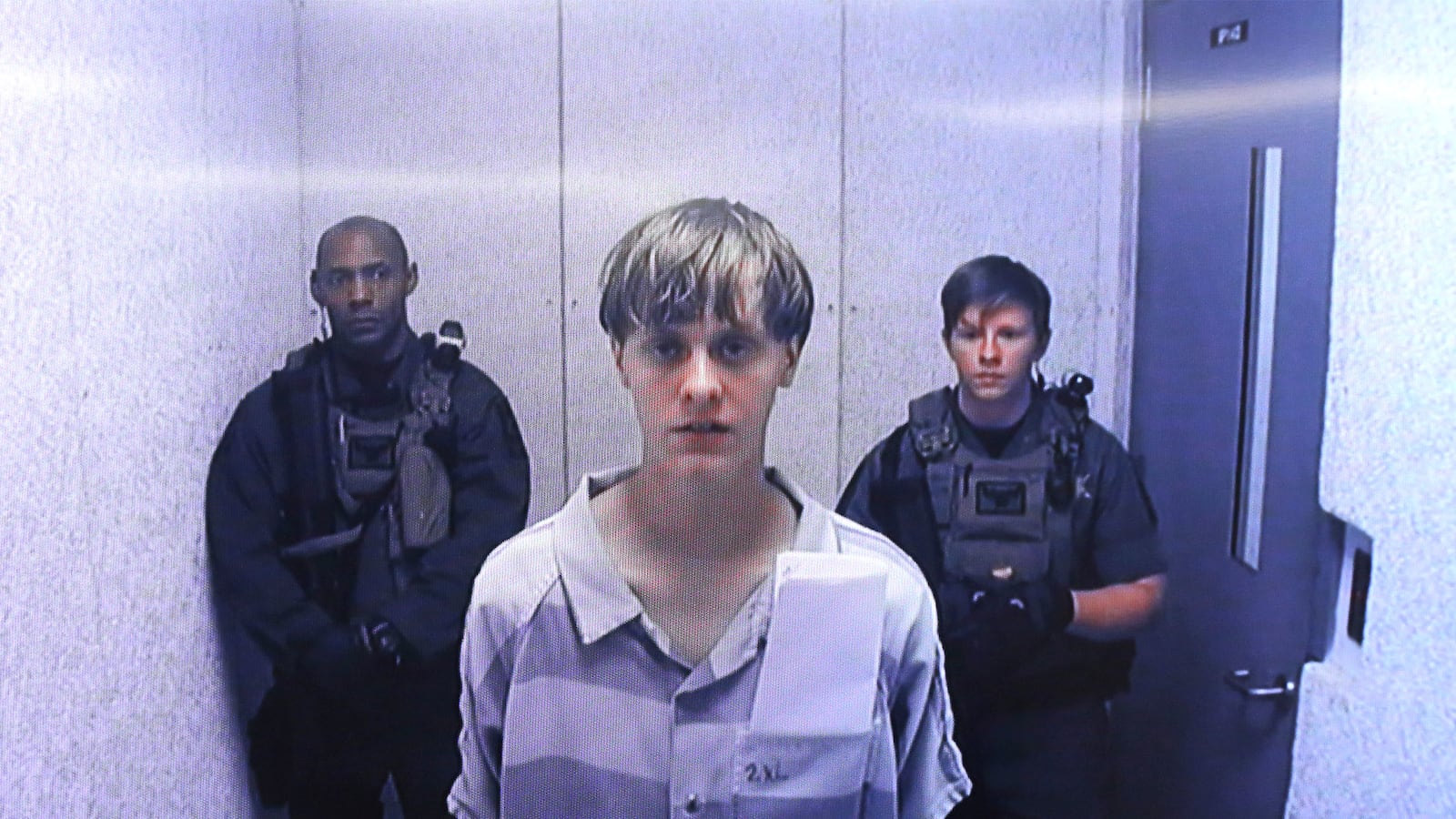There is no question of guilt. Dylann Roof is not fighting for his freedom, but for the very thing he denied nine innocents in the basement of a historically black church in Charleston, South Carolina—life.
Our justice system affords many things, among them a taxpayer sponsored trying of evidence and weighing of consequences by a judge or a jury of our peers. Denied a bench trial, Roof faces 33 counts related to the shootings of nine black parishioners. Prosecutors say he wanted to start a race war.
In capital murder cases, such as the one now underway for a domestic terrorist who legally purchased a 45-caliber Glock, multiple high-capacity magazines, and a cache of cheap ammunition, jurors must not only assess his culpability in the massacre, to which he has formally pleaded not guilty, but then decide whether the 22-year-old mass murderer’s brief life is worth sparing.
Should jurors decide to render a death sentence, it may well be years before an execution is carried out by the state of South Carolina. Roof will almost certainly be the beneficiary of a system constructed to afford him every chance to delay his last breath. And, at least some of that support will come from some of the people most devastated by his monstrous plot—the victims’ families.
Ethel Lance was among those he killed. But her daughter, Sharon Risher—who also lost two cousins in the carnage—does not believe Roof should die. Risher is a chaplain. However, she has not forgiven the then-21-year-old white supremacist who slaughtered members of her family. Even so, Risher, who in the year since her mother’s murder has become an anti-gun activist, does not support capital punishment—not for Roof, not for anyone.
“God is the only being who decides our fate,” she wrote in an opinion column for Vox.com.
She is not alone. And, the difference is spelled out in black and white. A recent poll found that 65 percent of African Americans in South Carolina want Roof’s life to be spared. By comparison, nearly the same number of white people in the state believe he should be executed for his crimes. Support for capital punishment—among black people, writ large—has fallen through the years. Whether because of our own distrust for a government that disproportionately imprisons African Americans—who currently represent more than half of those who await execution—or because of religious traditions, as a people we have turned away from an “eye for an eye.”
Retribution, many will tell you, is not justice.
Broadly, 6 in 10 Americans support capital punishment for the most heinous crimes—up nearly 20 percentage points since the 1960s. Black people, according to Gallup, are the least likely to condemn a convicted murderer to death.
Government “can’t be trusted to control its own bureaucrats or collect taxes equitably or fill a pothole, much less decide which of its citizens to kill,” wrote Sister Helen Prejean, one of the foremost anti-death penalty activists, in her book Dead Man Walking.
Of the full jury panel, 12 are white, five black, and one person identifies as “other.” Alternates will not be chosen until the guilt phase of the trial has concluded, but whichever 12 must decide, each of them has been “death certified,” meaning that they do not profess a conscientious objection to the death penalty (any prospective juror who objected would have been “dismissed for cause”).
By now, the jurors in the Roof case have heard his chilling confession to police, passages from his personal journal, and the now infamous “manifesto” he posted online. They have heard the callous words, the cruel and vicious stereotypes spewed by a young man seemingly incapable of reasoned thought. The prosecution, through eyewitness testimony and direct evidence collected by multiple law enforcement agencies, has begun the work of retracing his steps—where he went, what he brought, what he wrote—in an attempt to demonstrate that the crimes were premeditated. According to testimony, Roof even switched off the GPS device on his car to avoid detection while his carried out the mass shooting.
No act of passion, there were many instances when Roof could have turned back, moments when he could have decided that life—theirs and his own—is valuable, in its own right and for its own sake. Instead, as the prosecution case wears on, we have begun to witness the depth of his depravity and the maliciousness with which he stole innocent lives. Roof, as illustrated in pages of his journal and in the horrific crime scene photographs, may be among the least worthy of our collective mercy.
Before entering Mother Emanuel African Methodist Episcopal Church on the evening on June 17, 2015, at the start of a prayer service, there had been a handwritten list of potential targets—all predominantly black churches. Among them were Central Baptist, Morris Brown AME, Calvary Episcopal, and Ebenezer AME. He wanted to kill them. For good measure, Roof purchased a laser sight device to ensure accuracy.
Also in his car was a mention of Denmark Vesey, a slave and founder of Emanuel AME. It was Vesey’s failed rebellion in 1822 that led to his public hanging. The church, set upon by angry white mobs, was burned to ashes and its congregants were driven underground. Mother Emanuel rose again. However, ironically, there may be a second execution in its name and the goodness for which it stands.
Vesey, a skilled carpenter who won a city lottery and used a portion of the proceeds to purchase—for $600—his freedom when he was 32, waged his fight on behalf of humanity. No decent, Christ-loving, liberty-seeking people, he believed, should be able to feed and sustain itself on the horrors of slavery. He died, pressing society to its best and highest good.
By contrast, Roof conducted a frontal assault on humanity. Targeting a race of people, cowardly entering a church where he knew no one would be armed and able to defend themselves, Roof attempted to sound a clarion call that he hoped others might hear and heed. If there is a standard at all for the state putting someone to death, Roof met and exceeded it.
But Risher, Prejean, and others who want to see capital punishment abolished are challenging us to rethink that standard. Together, they are challenging us to do a hard thing in the midst of the most impossible circumstances. When our hearts are broken, our faith in humanity shaken, they are asking us to look upon the malevolent and spare its heartbeat. In so many ways, they are asking us to avenge the death of Vesey by sparing the life of a man who would have been an eager participant in his murder. Roof spent less money on a gun and ammunition than it took Vesey to buy his freedom.
“Y’all are raping our white women,” Roof told Tywanza Sanders before killing him. “Y’all are taking over the world.”
We know that because Roof intentionally left a woman named Polly Shepard alive so that she could tell his story. The jury’s decision—whether to sentence him to life in prison or send him to death row—will tell ours.





